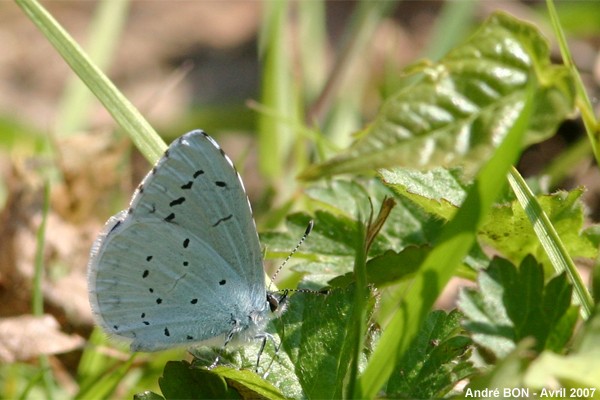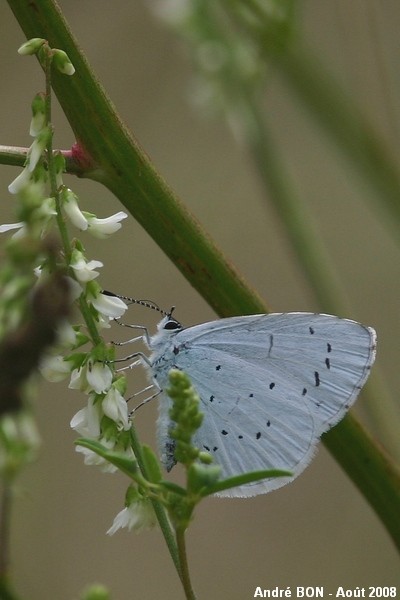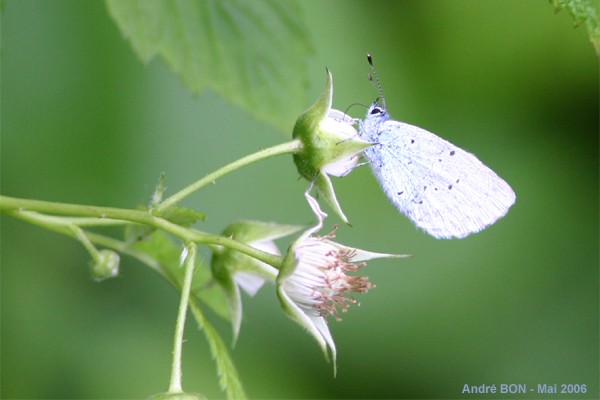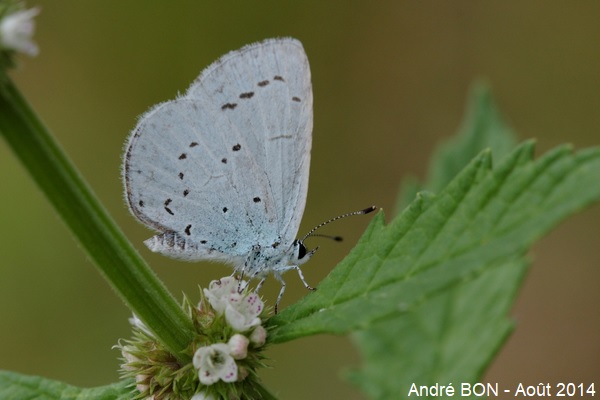



| Holly Blue (Celastrina argiolus (Linnaeus, 1758)) |




|
|
Scientific name: Celastrina argiolus (Linnaeus, 1758) Common name: Holly Blue Other names: Spring Azure or Hill Hedge Blue French name: Azuré des nerpruns Order: Lepidoptera Suborder: Rhopalocera Family: Lycaenidae Subfamily: Polyommatinae Wingspan: 26 to 34 mm Biotope: Open woodlands, parks and gardens. Geographic area: Europe except Scotland and Northern Scandinavia. Asia, North America and Africa. Flight time: March-April then July-August Number of generations : 2 Caterpillar: Green with a small yellow band on the sides and sometimes with dark red or pink stripes. Host plant: Holly and Ivy. |
The male's wings are lilac-blue with a narrow black outer margin on the fore wings. The female's wings are a more intense blue with wide black outer margins and eight black spots on each hindwing. The underside of the wings is similar on both sexes, pale blue with black lines and black spots. The black spots of the fore wing have a long shape. The pupa hibernates. |
| [To know more about the Holly Blue] [Next picture] [Top] |

|
I saw this butterfly near a woodland edge. Like all other azures you often need to grovel to take the picture. |
| [To know more about the Holly Blue] [Next picture] [Previous picture] [Top] |

|
At this date, I have been able to shoot pictures of the upper side of the wings for the few azure species I have observed except for the Holly Blue. I just need to be patient ... |
| [To know more about the Holly Blue] [Next picture] [Previous picture] [Top] |

|
Depending on the light orientation, the Holly blue's wings can have a silver colour. |
| [To know more about the Holly Blue] [Previous picture] [Top] |

|
I have read that you have a higher probability to see a Holly Blue landed with its wings open when the weather is cold. This is still not for this times. |